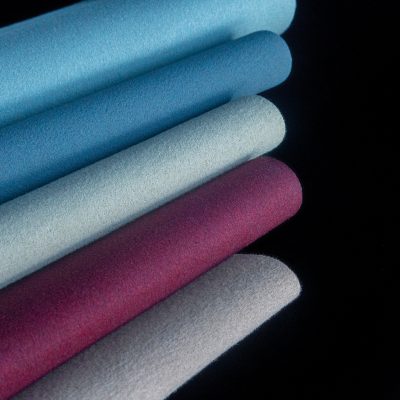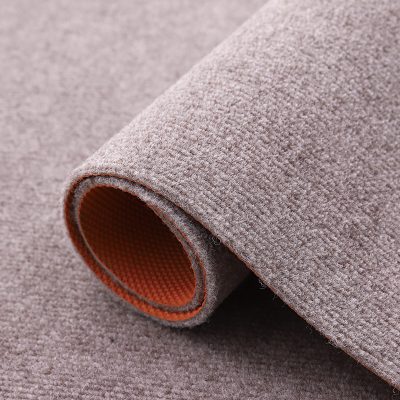Industrial-Grade Floor Mats for Commercial Use: Durable and Practical Solutions
In commercial and industrial environments, floor mats are not just about aesthetics; they play a critical role in ensuring safety, protecting flooring, reducing wear and tear, and improving comfort for workers. Industrial-grade floor mats are designed to withstand heavy-duty use, providing durability, slip resistance, and protection in high-traffic areas. These mats are especially important in environments such as factories, warehouses, restaurants, and offices where the volume of foot traffic and the risk of accidents are significant. Here’s everything you need to know about industrial-grade floor mats for commercial use.
Why Use Industrial-Grade Floor Mats?
- Safety and Injury Prevention Industrial environments often pose risks of slips, trips, and falls due to wet or greasy floors. Industrial-grade mats, especially anti-slip mats or anti-fatigue mats, provide an additional layer of protection, reducing the risk of accidents. Mats with textured surfaces or drainage holes are designed to offer better traction, even in wet conditions.
- Durability and Longevity Commercial spaces experience heavy foot traffic, machinery movement, and spills. Industrial-grade mats are made from tough, high-quality materials like rubber, vinyl, or heavy-duty PVC that can handle the demands of these environments without breaking down or wearing out quickly. Their ability to resist damage from sharp objects, heavy equipment, or abrasive environments makes them ideal for long-term use.
- Comfort for Workers In work environments where employees stand for long hours—such as at assembly lines, cash registers, or kitchen counters—anti-fatigue mats are essential. These mats reduce strain on the legs and feet, increasing worker comfort and productivity. Industrial mats with cushioning properties can help mitigate the discomfort caused by prolonged standing.
- Floor Protection Industrial-grade mats protect the underlying flooring from damage caused by heavy equipment, tools, or frequent foot traffic. Mats help absorb impacts, prevent scratches, and reduce wear on floors. This can extend the life of your flooring and reduce maintenance or repair costs over time.
- Easy Maintenance and Hygiene Many industrial mats are designed with easy-to-clean surfaces, and some are even resistant to oils, chemicals, and spills. Mats with drainage holes or non-porous materials can quickly shed liquids, preventing accidents and making cleanup more efficient in environments like kitchens, factories, or industrial plants.
Types of Industrial-Grade Floor Mats
1. Anti-Fatigue Mats
Anti-fatigue mats are specifically designed to alleviate the physical strain caused by prolonged standing. They encourage subtle movement, which improves circulation and reduces fatigue. These mats are commonly used in manufacturing plants, assembly lines, kitchens, and retail environments where employees are required to stand for extended periods.
Features:
- Cushioned surfaces to relieve pressure on feet, legs, and back.
- Ideal for workstations, counters, and assembly lines.
- Made from rubber, foam, or vinyl.
- Often have beveled edges to prevent tripping.
Best for: Retail counters, kitchen workstations, factories, and office environments.
2. Slip-Resistant Mats
In industrial environments where water, oil, grease, or chemicals are common, slip-resistant mats are essential for preventing slips and falls. These mats often feature a textured or raised surface that enhances traction, reducing the risk of accidents in wet or oily conditions.
Features:
- Made from rubber, nitrile, or PVC for superior grip.
- Available in different textures (e.g., diamond plate, ribbed, or grated patterns).
- Resistant to moisture, oils, and chemicals.
- Often feature drainage holes for water or liquid flow.
Best for: Kitchens, factories, warehouses, and areas with wet or slippery conditions.
3. Entrance Mats
Industrial-grade entrance mats help protect floors from dirt, debris, and moisture being tracked into a commercial or industrial space. These mats capture dirt, dust, and water at the door, keeping the rest of the facility cleaner and reducing wear on floors. They also provide safety by minimizing the risk of slips at the entrance.
Features:
- Heavy-duty, non-slip backing to keep the mat in place.
- Available in different sizes to cover large entryways.
- Made from durable materials like polypropylene, rubber, or coir.
- Easy to clean and maintain.
Best for: Office buildings, retail entrances, manufacturing facilities, and warehouses.
4. Drainage Mats
Drainage mats are ideal for environments where liquids (water, oils, chemicals, etc.) are prevalent. These mats have built-in drainage holes that allow liquids to flow through and away from the surface, keeping the mat drier and reducing slip hazards. Drainage mats are often used in kitchens, factories, and areas where employees work in wet conditions.
Features:
- Perforated design for liquid drainage.
- Made from durable rubber or PVC.
- Often have a raised surface for additional comfort and drainage.
- Available in custom sizes to fit various spaces.
Best for: Commercial kitchens, restaurants, industrial plants, and wet areas.
5. Heavy-Duty Rubber Mats
Heavy-duty rubber mats are designed to withstand the harshest conditions in commercial and industrial settings. These mats are often used in high-traffic areas or places with heavy machinery or equipment. They offer excellent durability, slip resistance, and shock absorption, making them ideal for environments that require robust floor protection.
Features:
- Made from tough rubber, which resists abrasion, oils, and chemicals.
- Often come with beveled edges to prevent tripping.
- Suitable for use with heavy equipment and in high-traffic areas.
- Easy to clean and maintain.
Best for: Warehouse floors, manufacturing plants, loading docks, and assembly lines.
6. Coiled or Raised-Profile Mats
Coiled or raised-profile mats are designed to provide comfort and safety in environments where workers need to stand for long periods. These mats often have a raised pattern or a coiled design that helps reduce pressure on joints and muscles, while also offering slip resistance and durability.
Features:
- Raised surfaces help increase circulation and comfort.
- Coiled or raised patterns help create airflow and prevent moisture buildup.
- Resistant to oils, chemicals, and heavy foot traffic.
- Available in customizable sizes for specific workstations.
Best for: Workstations, assembly lines, kitchens, or areas where workers stand for long periods.
7. Vinyl and PVC Mats
Vinyl and PVC mats are often used in industrial settings where chemical resistance and durability are required. These mats are non-porous, making them easy to clean and maintain. They also provide excellent resistance to oils, grease, and solvents, making them perfect for heavy-duty industrial environments.
Features:
- Made from non-porous, chemical-resistant vinyl or PVC.
- Easy to wipe clean and maintain.
- Often used in areas where chemicals, oils, or grease are common.
- Slip-resistant surfaces for safety.
Best for: Factories, chemical plants, kitchens, and areas with exposure to oils and chemicals.








